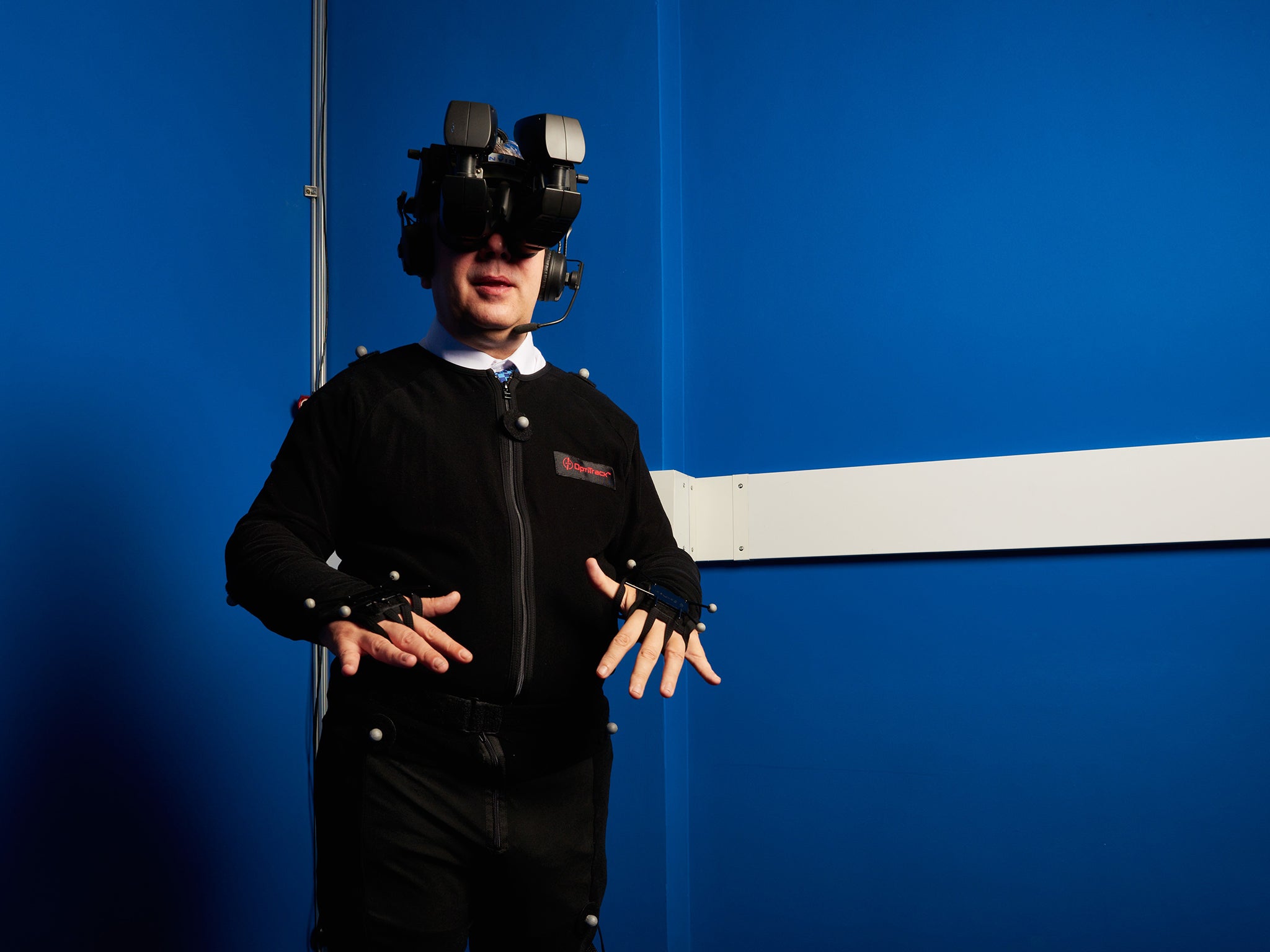Virtual reality self-help: 'Is this my inner child that I see before me, weeping?'
A remarkable experiment aims to help stressed adults develop ‘self-compassion’ via a virtual-reality headset. Sean O’Grady tried it out

Dressed up like a frogman, little silver plastic buttons velcroed to my body and with a massive (3kg) virtual-reality headset, I am feeling more than a little self-conscious.
An experiment involving 43 highly self-critical women found they became more self-compassionate after they came face to face with an avatar of themselves in a caring, calming mood.
Now I, a hard-nosed journalist, am taking the test, confronted by a crying virtual child in a virtual room; a boy of about 12 I need to comfort. My movements and reactions are tracked by the special suit, and I am supervised by an experimental psychologist.
I try to tell the little boy that it is OK to cry; that sometimes bad things happen; and that he should think about the people who love him and what they might say to him, seeing him in this state. I do not know why he is upset, (well, he doesn’t actually exist, to be fair) but I have been briefed by the psychologist to be non-judgmental. It doesn’t matter if he is crying because he stubbed his toe or because he’s being bullied.
The thing to do is to “validate” his behaviour; it is fine to weep, and I’m not to tell him he is being silly or shout for the nearest female to come and sort the kid out. Anyway, it worked; he began to smile, and all was well in our tiny virtual world.
Most people who know me may be surprised to hear this, but Dr Caroline Falconer, postdoctoral research associate in clinical, educational and health psychology at University College London was delighted by the way I managed to calm this troubled virtual kiddie. “Brilliant”, was her verdict, as she praised my tone of voice, the measured way I talked, the sincerity of the whole approach.
Er, but what is the point of this exercise? It is not, in fact, to teach middle-aged blokes how to deal with upset youngsters. It is a therapy for all those folk who “beat themselves up” a lot emotionally, for real or perceived failures in life. They make themselves unhappy in doing so, and it can shade into episodes of depression, with all the other health problems that entails. When you are talking to the child, you see, you are really talking to yourself.
This becomes virtually/literally true in the second stage of the experiment, when it gets really weird. You become the child looking up and listening to an adult avatar – in my case, me! The reason why a child is chosen is because of our natural instinct to be protective to a juvenile. It’s nothing to do with my “inner child”, whatever that may be. Anyway, my avatar doesn’t look much like me because they cost £1,000, so in this game I am a rather slimmer, more handsome, younger man. But he did have my gentle, reassuring East Midlands tones, and I was greatly comforted by myself. In encouraging the crying child/me to try to recall a memory of a person who loves them that memory is supposed to instil more positive feelings of warmth, comfort, and safety. Which it did.
All this, I guess, means that I do not in fact beat myself up in real life, well not that much, which is just as well because there are plenty of other people who very happy to oblige in that project.
As a matter of fact, back in the office, I felt unusually high levels of sympatico towards friends and colleagues, all of them wonderful, creative, dedicated people. The therapy, then, which only took about half an hour, worked; the experiment may be judged a success; and, as Dr Falconer told me, I am “someone special”. I always knew as much.
Join our commenting forum
Join thought-provoking conversations, follow other Independent readers and see their replies
Comments